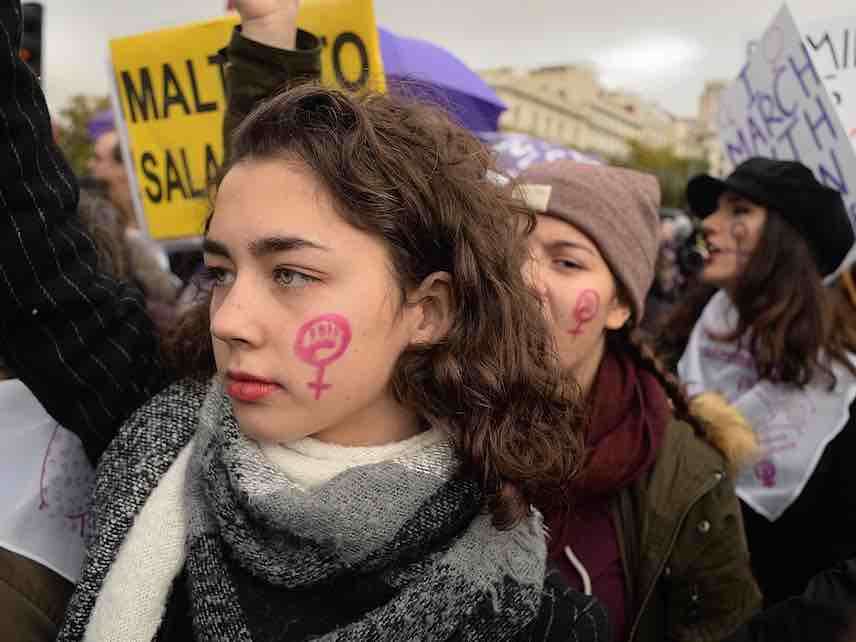California Women's March Canceled for Being 'Overwhelmingly White'
Modern leftist activism is mired in infighting between the most marginalized and their allies. Blame intersectionality.

Organizers of a planned Women's March in Eureka, California, cancelled an event due to concerns that too many white people would show up—which is a pretty damning indictment of intersectionality, the ubiquitous yet contradictory philosophy of the modern activist left.
A rally had been scheduled for January 19, but Women's March leaders aborted their plans because "up to this point, the participants have been overwhelmingly white, lacking representation from several perspectives in our community," according to a press release. "This decision was made after many conversations between local social-change organizers and supporters of the march."
This news attracted much derision, and deservedly so. For one thing, the disproportionate white involvement might simply reflect the fact that Eureka is about 75 percent white, according to U.S. Census data. For another, leftists often claim that white people are responsible for President Donald Trump's victory in 2016—inexplicably, white women are held in particular contempt, even though they vote Democratic more often than white men—and need to change their attitudes. But here's some white folks expressing enthusiasm about joining their comrades of color in the #Resistance, only to be told, Well, maybe you should stay home.
The Eureka incident lends itself to a kind of Eureka! insight about the problems with intersectionality, which has become the dominant intellectual theory of the left in the three decades since sociologist Kimberle Crenshaw first proposed it. According to intersectionality, various forms of oppression are distinct yet interrelated, and these forms stack: A black man is more oppressed than a white man, a black woman is more oppressed than a black man, a gay black woman is even more oppressed, and so on.
There's nothing innately wrong with such analysis, but adherents of intersectionality also tend to believe that the oppressed are the sole experts on the subject of their own oppression. At the same time, it is not their job to educate you—a line parroted by many activists, particularly on college campuses, when they are questioned. As a result, intersectionality in practice often means that some activists expect well-intended liberals to sit down, step back, and defer to the expertise of the most marginalized people. But those people might not be well-positioned to lead a mass #Resistance movement—they may have disabilities, poor mental health, or lack of access to financial means, which are all stackable categories of oppression—and they might even expect the cis white hetero males to take a turn doing the work. It's really hard to square all these circles.
That's one important conclusion of my book, Panic Attack: Young Radicals in the Age of Trump, which I am pleased to announce will be released in 2019. (It's already available for preorder here.) I interviewed tons of activists about their goals, motivations, and beliefs, and one of the most common recurring themes was infighting caused by intersectionality. As one young activist woman told me, she absolutely hated the 2017 Women's March that occurred the day after Trump's inauguration, in which half a million people took to the streets of Washington, D.C., to protest the president. Why? You guessed it: too white.


Show Comments (123)